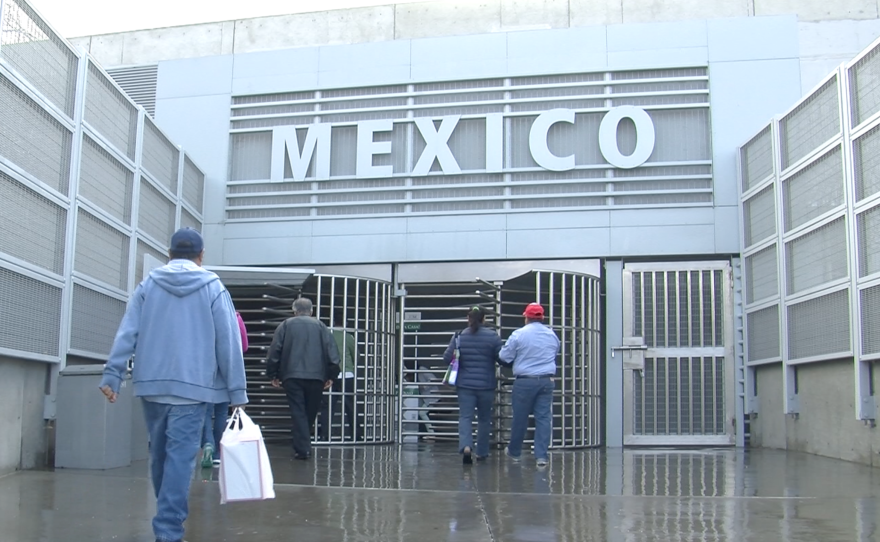Some Tijuana residents are concerned about a possible increase in drug-related crime due to the release of about 6,000 drug offenders from U.S. federal prison.
About a third of the offenders are non-citizens, and hundreds are being deported to Mexico. The deportations are part of a federal decision to reduce prison sentences for drug offenders as a way of decreasing overcrowding problems. Tijuana has received about 70 of them since Friday.
“It worries us because they come and commit crimes, and people can’t feel safe in their neighborhoods,” said Rosa Maria Pantoja, a 48-year-old resident of Tijuana.
She said she wishes deported Mexicans with criminal records were sent to their birth cities rather than to Tijuana.
“Here they don’t have anywhere to live and so they commit crimes,” Pantoja said, citing robbery as an example.
But officials say the number of deported drug offenders streaming into Tijuana isn’t significant. The U.S. deported about 60,000 Mexicans to Baja California last year, an average of 164 daily. The rhythm of deportations has remained the same this year, said Rodulfo Figueroa, Mexico’s top immigration official in Baja California.
“It’s not really a big deal,” said Figueroa, the head of Mexico’s National Migration Institute in the state. “We’re happy to have Mexicans back in Mexico, and we will do what we need to do to handle them the best we can. They have a right to come to Mexico. They’re Mexicans.”
Of the 60,000 people deported through the state's ports of entry last year, about 8,000 came from jails or prisons, Figueroa said. That's about 13 percent of the total.
Figueroa said migration officials are transferring the deported drug offenders who have outstanding arrest warrants in Mexico to the appropriate authorities.
“They will be vetted to see if they have pending issues with the Mexican justice system,” he said. “If not, we will help them as we would with any other repatriated Mexicans.”







